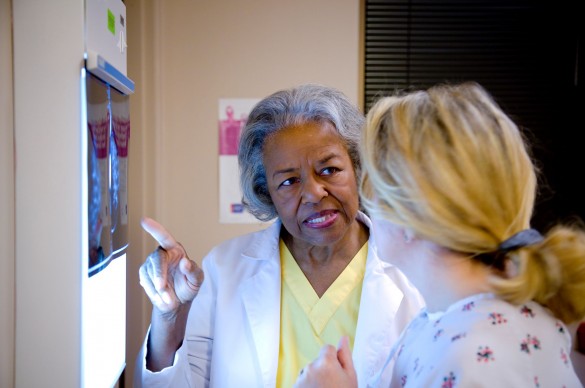Colorectal cancer remains the second leading cause of cancer death for men and women combined in our country – a fact that’s difficult to accept given that it’s one of a limited number of cancers that can be prevented through screening. Yet, more than 145,600 Americans will be diagnosed with colorectal cancer in 2019 and approximately 51,000 will die from the disease. These statistics are alarming since, in partnership with health care providers, we have the necessary tools to both prevent colorectal cancer and/or detect it during its early, most treatable stages, and we’ve discovered better and more effective treatments in the last few decades.
We have an opportunity to impact these statistics and reduce colorectal cancer incidence and death with proven public health policy. ACS CAN has long advocated for the “Removing Barriers to Colorectal Cancer Screening Act,” which was reintroduced this week in Congress and addresses a loophole in current law that can leave seniors on Medicare with a surprise bill if a polyp is found and removed during a screening colonoscopy. If a polyp is removed the procedure is billed as “diagnostic” rather than as a “screening,” subjecting patients to potentially costly coinsurance. The surprise bill can carry a price tag as high as $350, which can be a huge barrier for someone on a fixed income. The prospect of the added expense can lead seniors to skip the highly-effective preventive screening, putting them at risk for a later-stage diagnosis that can often be more expensive to treat and harder to survive.
The same coding and cost issue has already been addressed for those with private insurance. The Removing Barriers to Colorectal Cancer Screening Act would make things right in Medicare so unaffordable cost sharing doesn’t get in the way of these lifesaving screenings for a population who is at highest risk for cancer.
This piece of legislation is a prime example of how advocacy and public policy complement the medical advances we’ve made in the fight against cancer. Colorectal cancer is both preventable and treatable, and this legislation ensures that those at risk of developing the disease can access the screenings they need to manage their health. While the American Cancer Society (ACS) kicks off Colorectal Cancer Awareness Month with a campaign to reach an 80% colorectal cancer screening rate in every community nationwide, ACS CAN will continue to advocate for Congress to pass the Removing Barriers to Colorectal Cancer Screening Act.
Advocating for this bill is just one way that ACS CAN supports ACS’ goal of reducing colorectal cancer incidence and death. Last May, ACS issued a guideline update that recommends screening begin at age 45 for people at average risk of colorectal cancer, instead of starting at age 50, based on data showing increasing rates of colorectal cancer in younger populations. Since the guideline update, ACS CAN has worked to notify policymakers of the evidence in support of screening individuals aged 45-49 and the importance of expanding insurance coverage of screening for this age group. Last August, ACS CAN joined 22 public health and patient advocacy groups in requesting the United States Preventive Services Task Force (USPSTF) reconsider its 2016 colorectal cancer screening recommendation before its scheduled review in 2021. Recently, the USPSTF announced their intention to begin an off-cycle review of its colorectal cancer screening recommendation this year.
We are deeply grateful to the Congressional champions who introduced the Removing Barriers to Colorectal Cancer Screening Act, and I look forward to a day when seniors can be screened for colorectal cancer without fear of a surprise bill. ACS CAN will continue to advocate for public policies that support colorectal cancer patients and those at risk of developing the disease.

